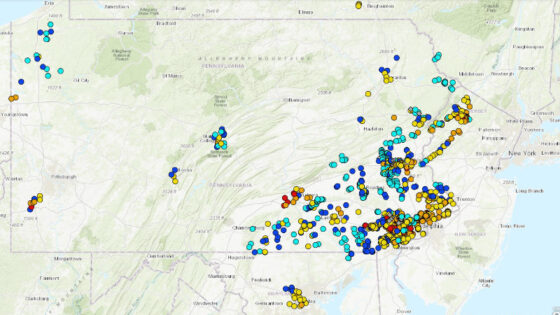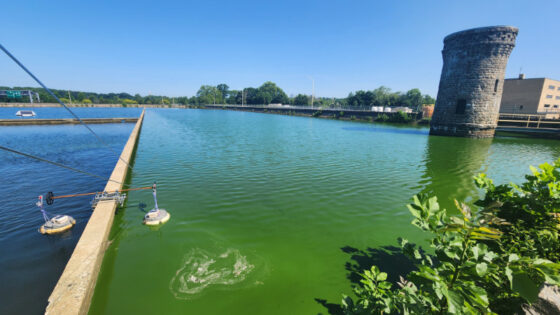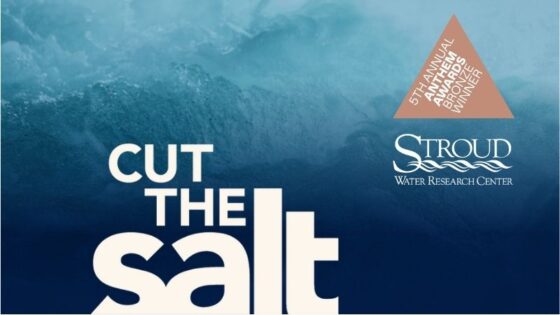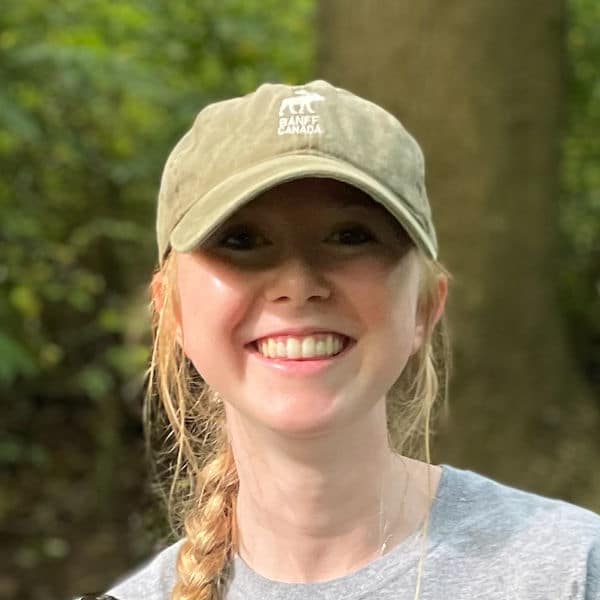
By Sofia Trone, Entomology Intern
On a beautiful July day, 19 summer interns, Stroud Water Research Center Education Programs Manager Kathryn Metzker, and Advanced Watershed Educator Steve Mohapp met at the Brandywine River Museum to canoe four miles down the Brandywine River. The trip was designed to get interns out of the office and onto the water, ensure all interns learn more about freshwater systems, and have fun together.
Carpooling and driving separately, everyone arrived at the Brandywine River Museum to help prepare for the trip. After Kathryn gave a safety overview, everyone worked together to help get the canoes off the truck and down to the water. The excitement was palpable as we all suited up and prepared to head to the water.
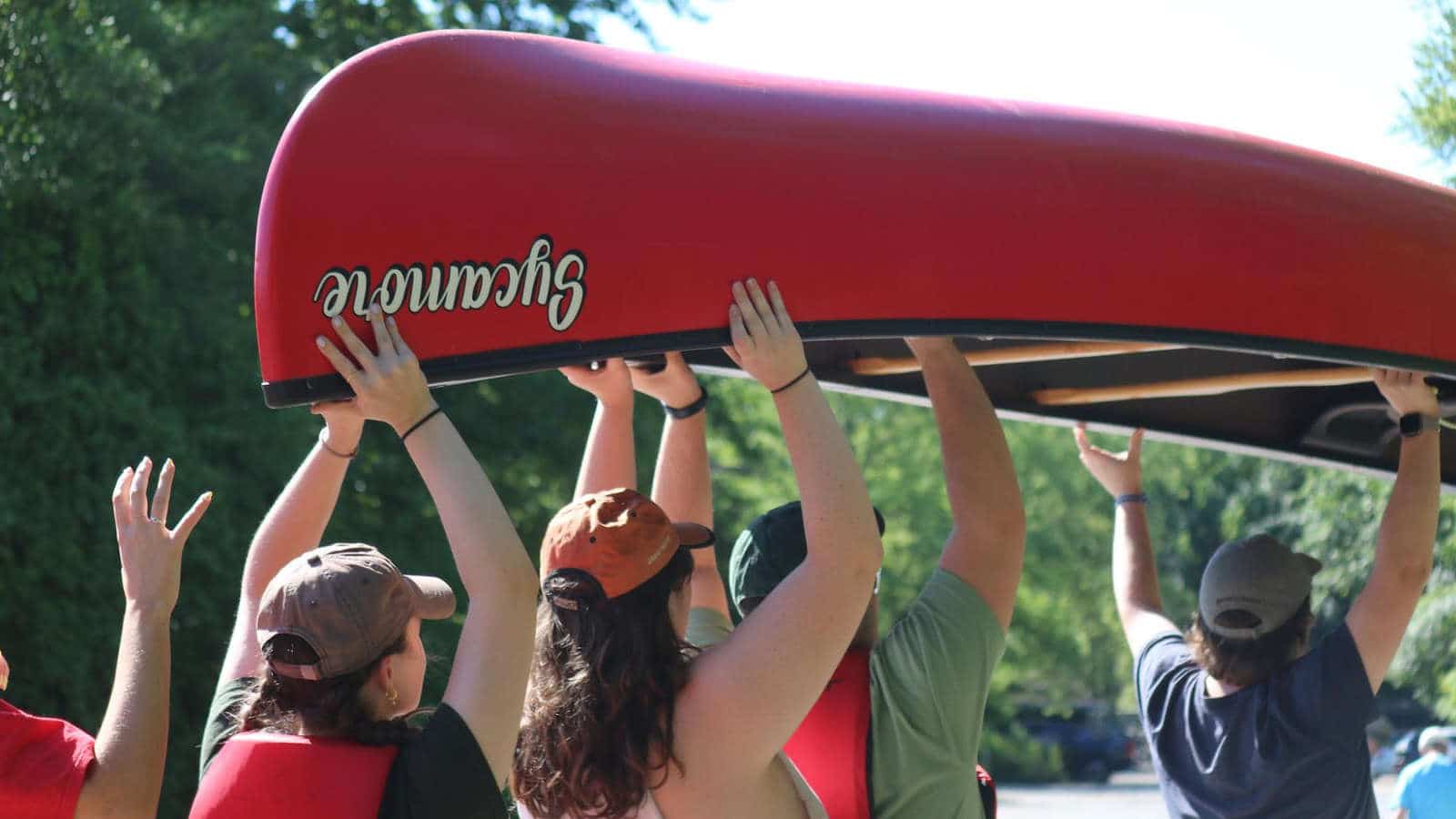
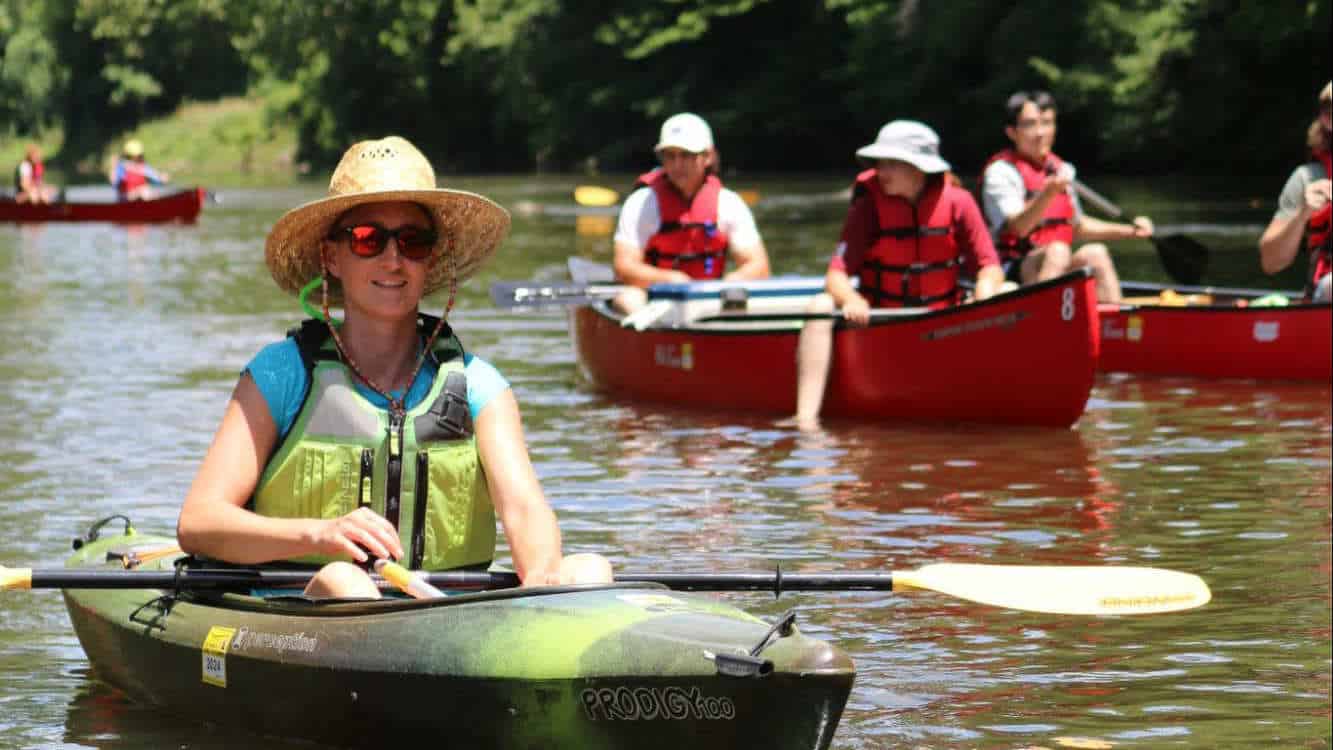
After working together to bring the canoes down to the water, most interns waited for those carpooling to place their cars at the end of our route. During this time, the entomology interns could not keep still and turned over rocks to look for bugs. Even under a main highway, they could find Ephemeridae larvae (burrowing mayflies) and dragonflies!
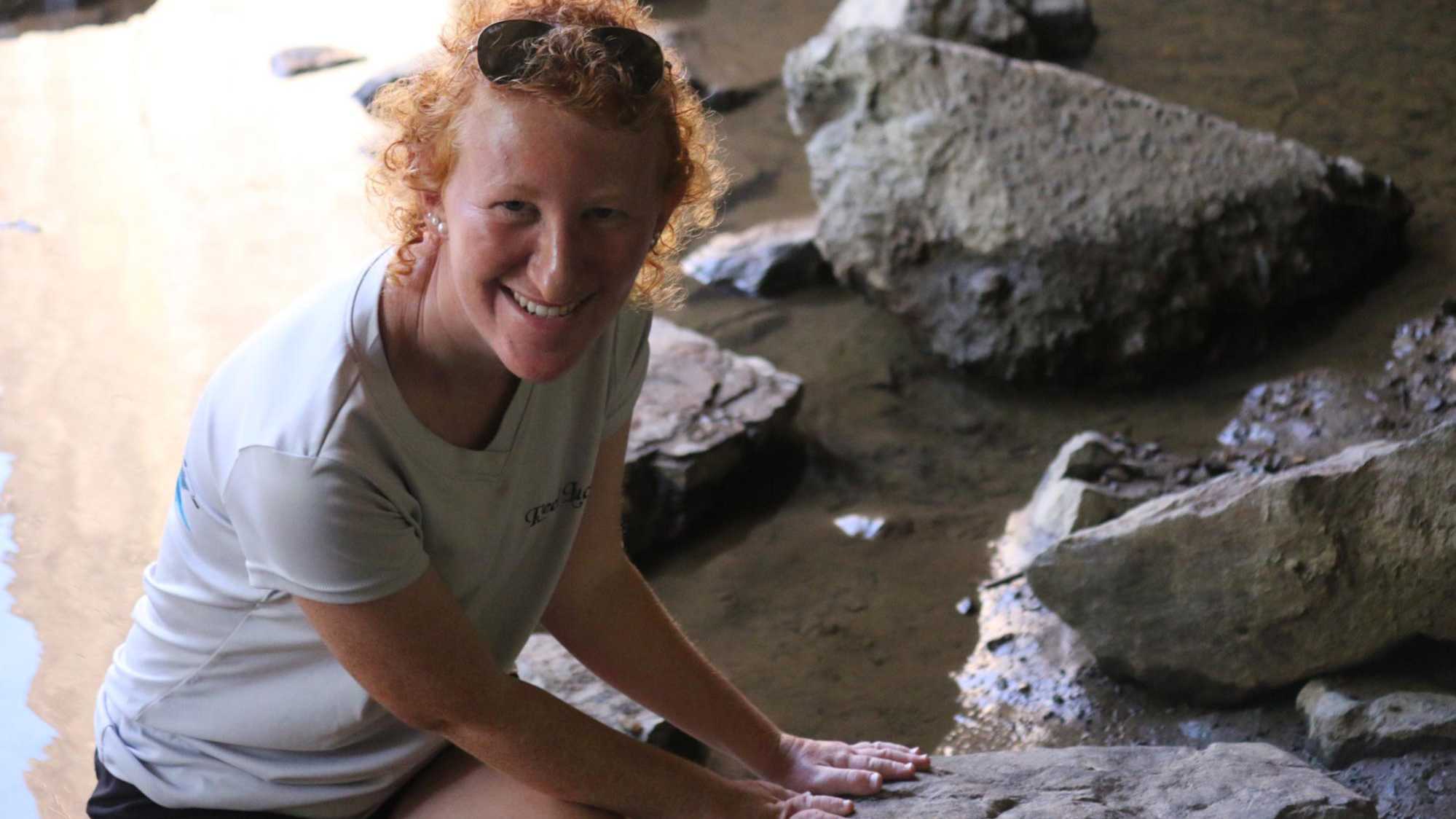
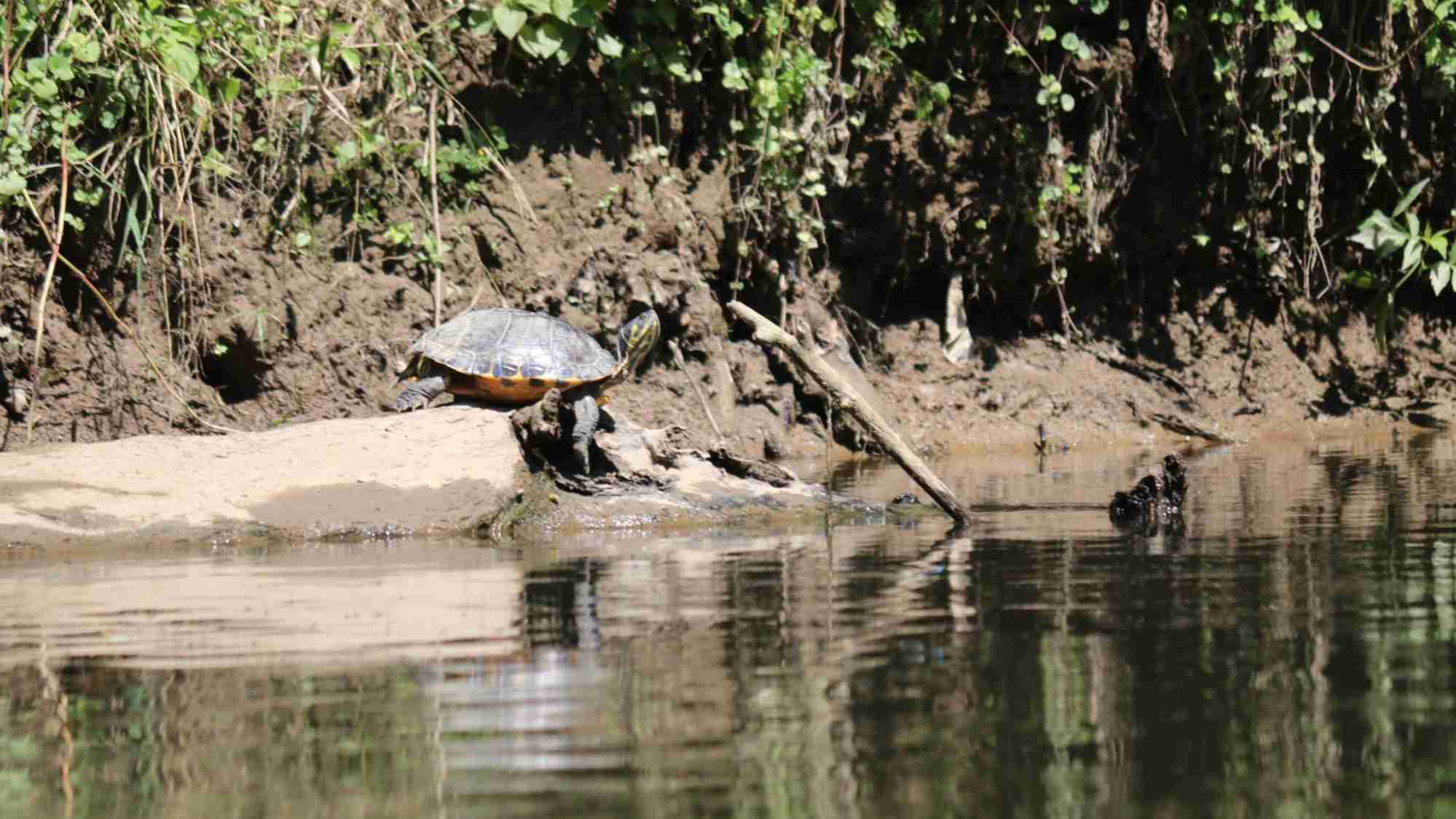
By 10 a.m., the interns were on the water and on their way! It took a couple of paddles for some to get used to steering a canoe, but once we were all settled, it was smooth sailing. Conversation flowed as we drifted down the Brandywine together, navigating the wide river and riffle areas. We were excited to spot a turtle and a couple of common mergansers on the bank!
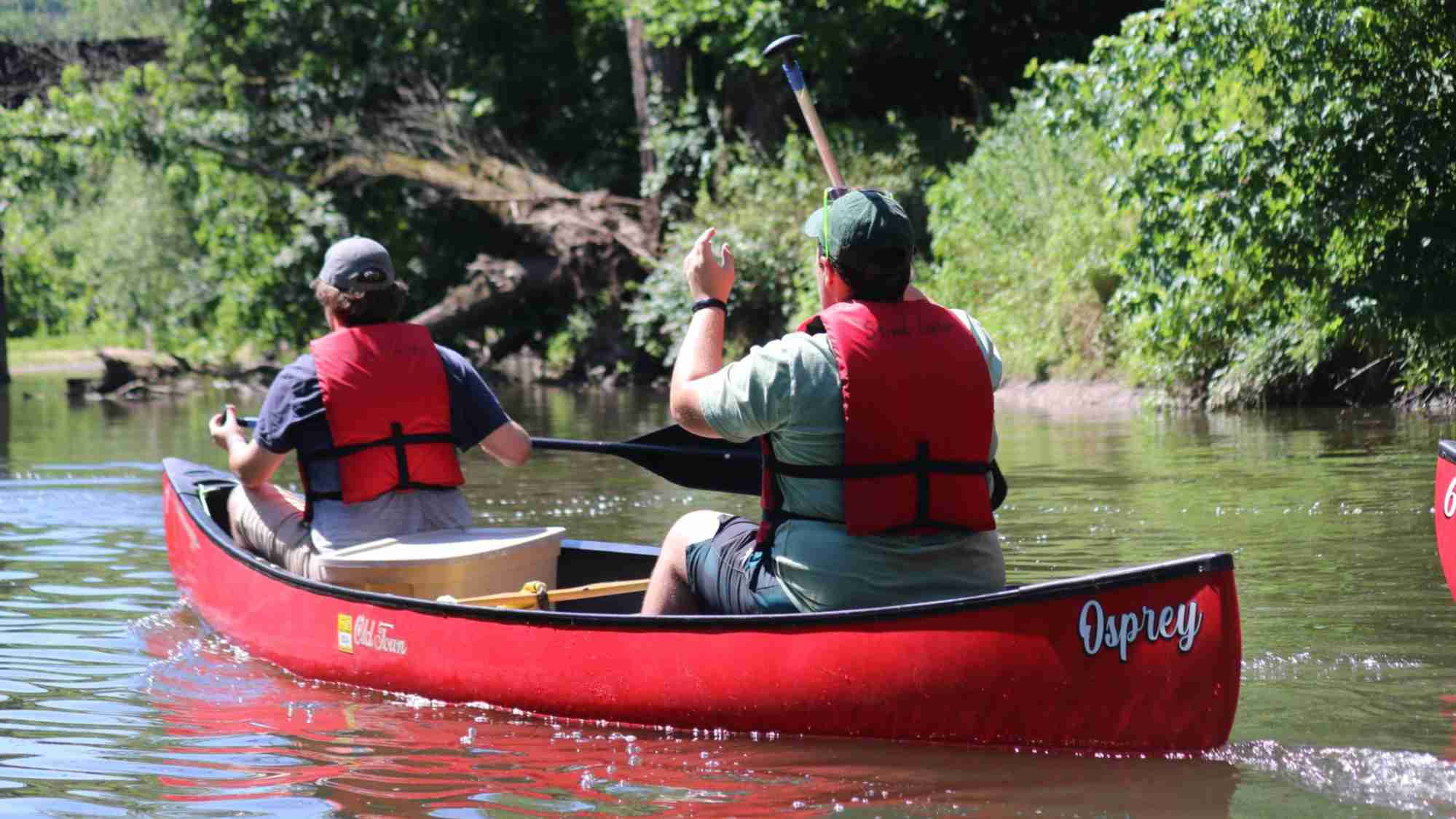
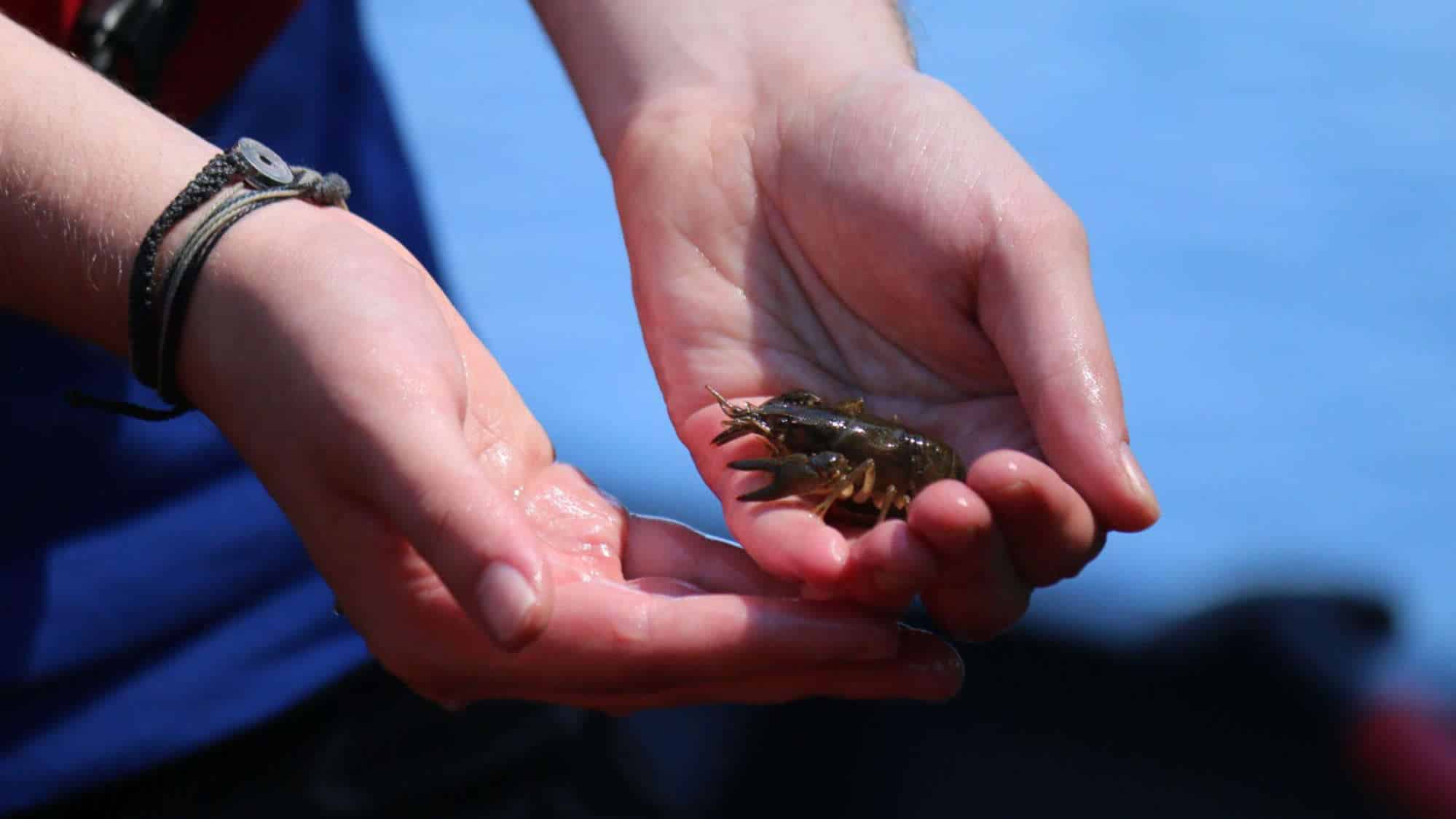
After our successful first stretch down the river, where we spotted a couple of crayfish and toads, we stopped for lunch on a tiny bank with some much-needed shade. As we all sat around in a circle and dug into our food, generously provided by Landhope Farms, proper introductions were made, including everyone’s ideal superpower. (Best answers included time travel and the ability to create portals!)
As we relaxed, Kathryn and Steve discussed their stories and what led them to work at Stroud Center. It was incredibly beneficial to hear from professionals working in a field they love and hear the inspiring stories that got them to where they are today.
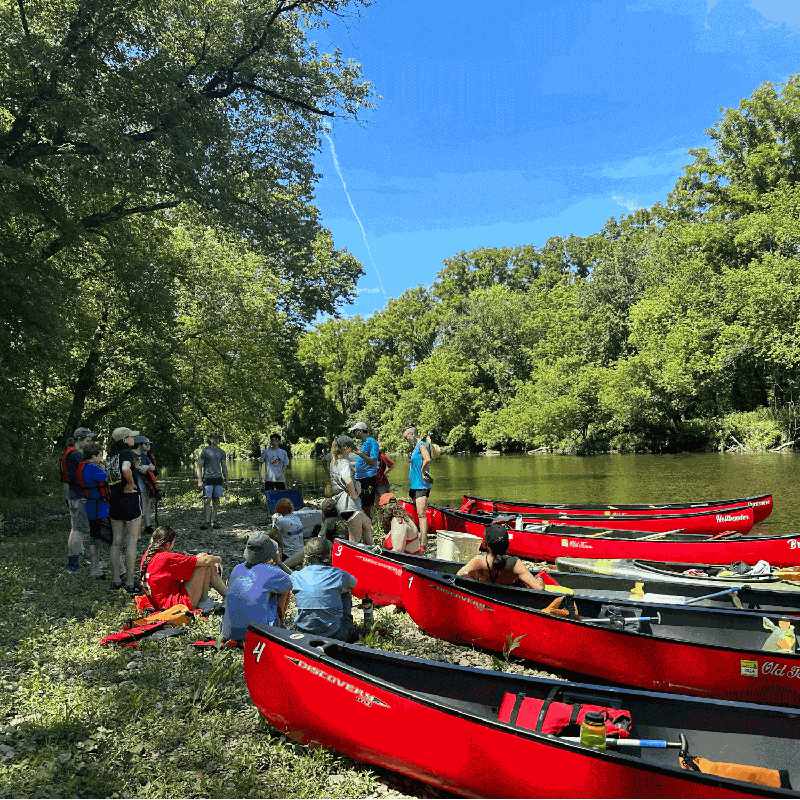
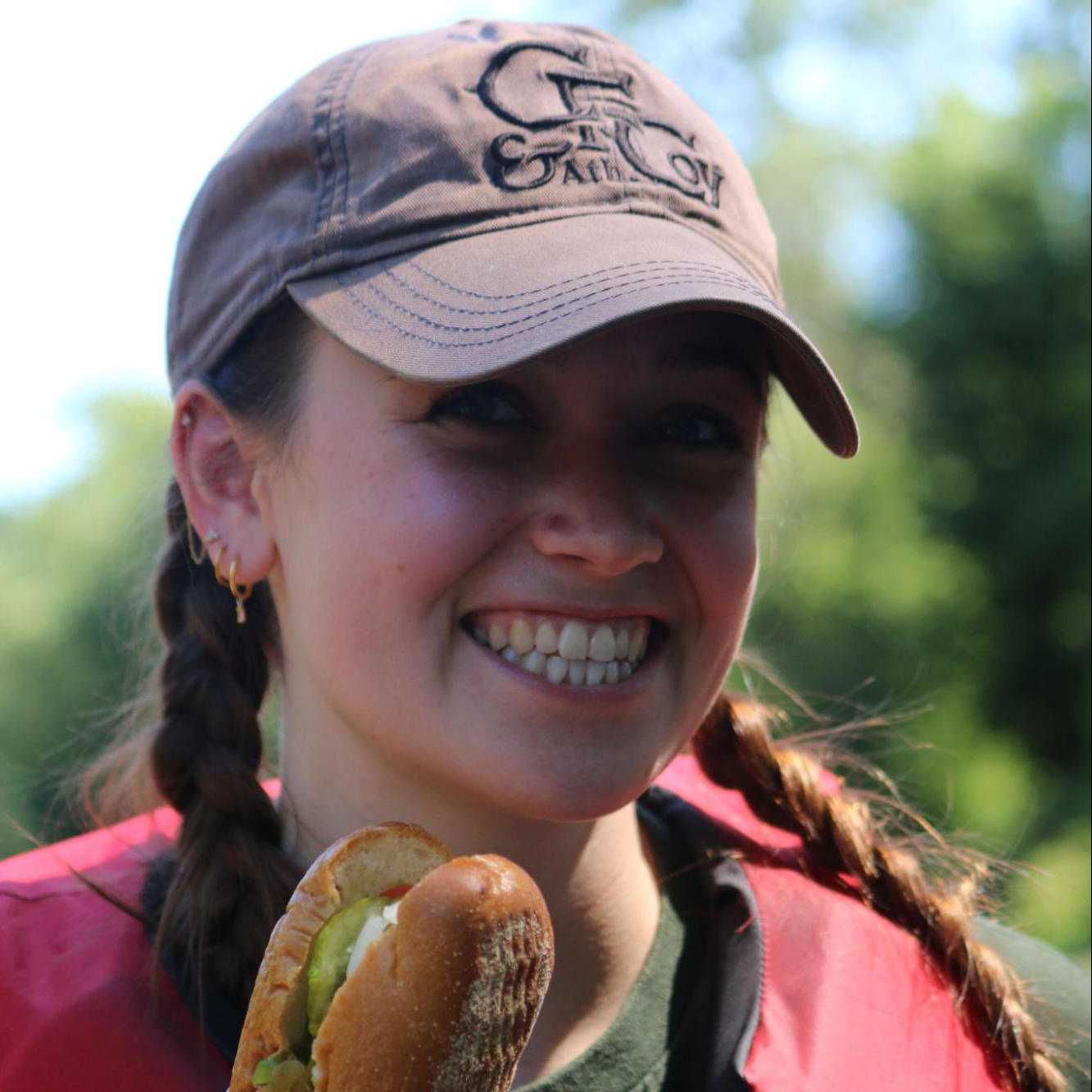
After lunch, we returned to the river and headed to our next destination. During this time, we witnessed some incredible wildlife, including a bald eagle, a one-eared owl that flew overhead, multiple herons, a huge dobsonfly, orioles, and a kingfisher that followed us our whole trip! Everyone was very excited to witness such beautiful wildlife so close to home and quickly tried to identify anything that came across our path.
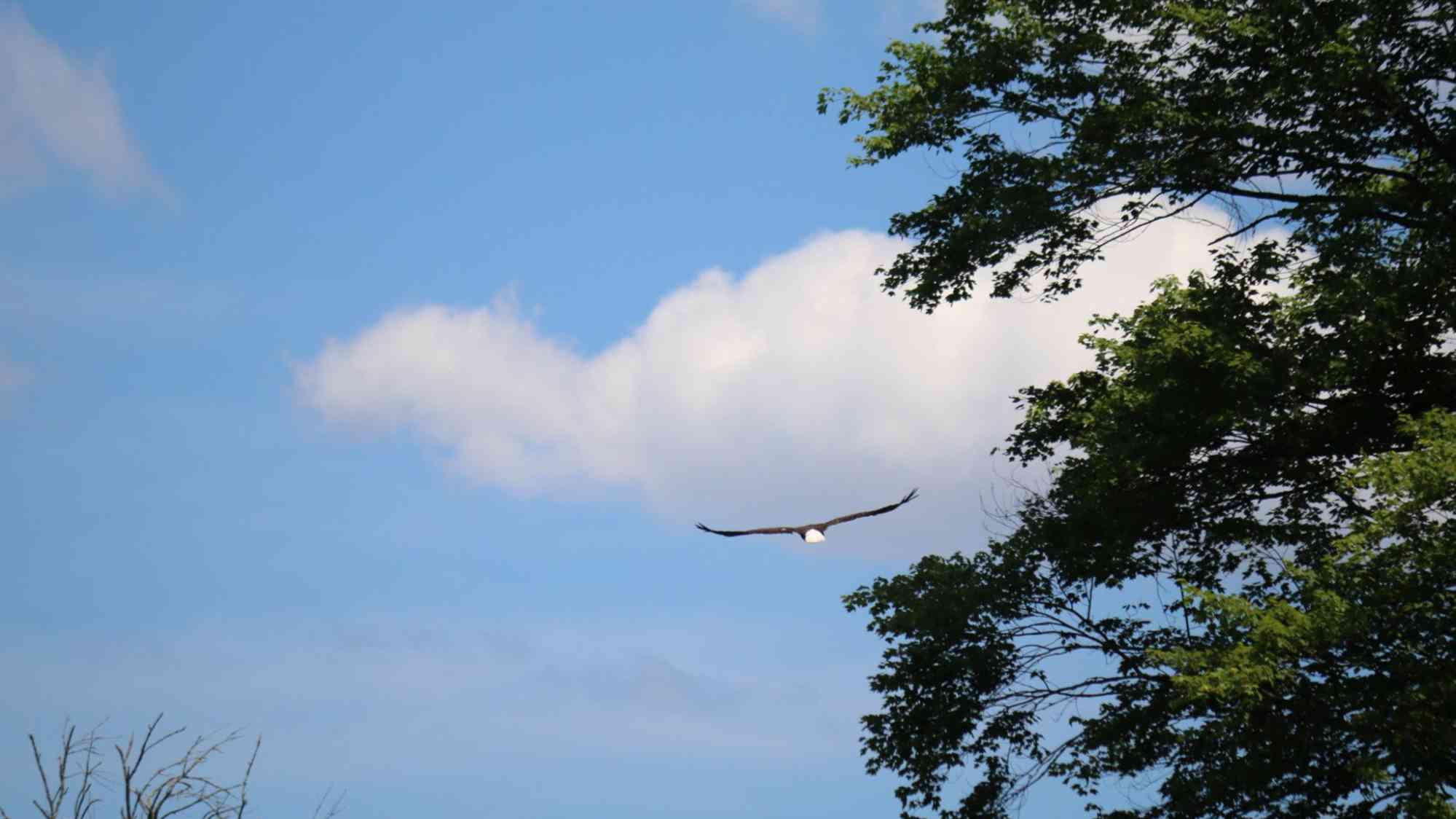
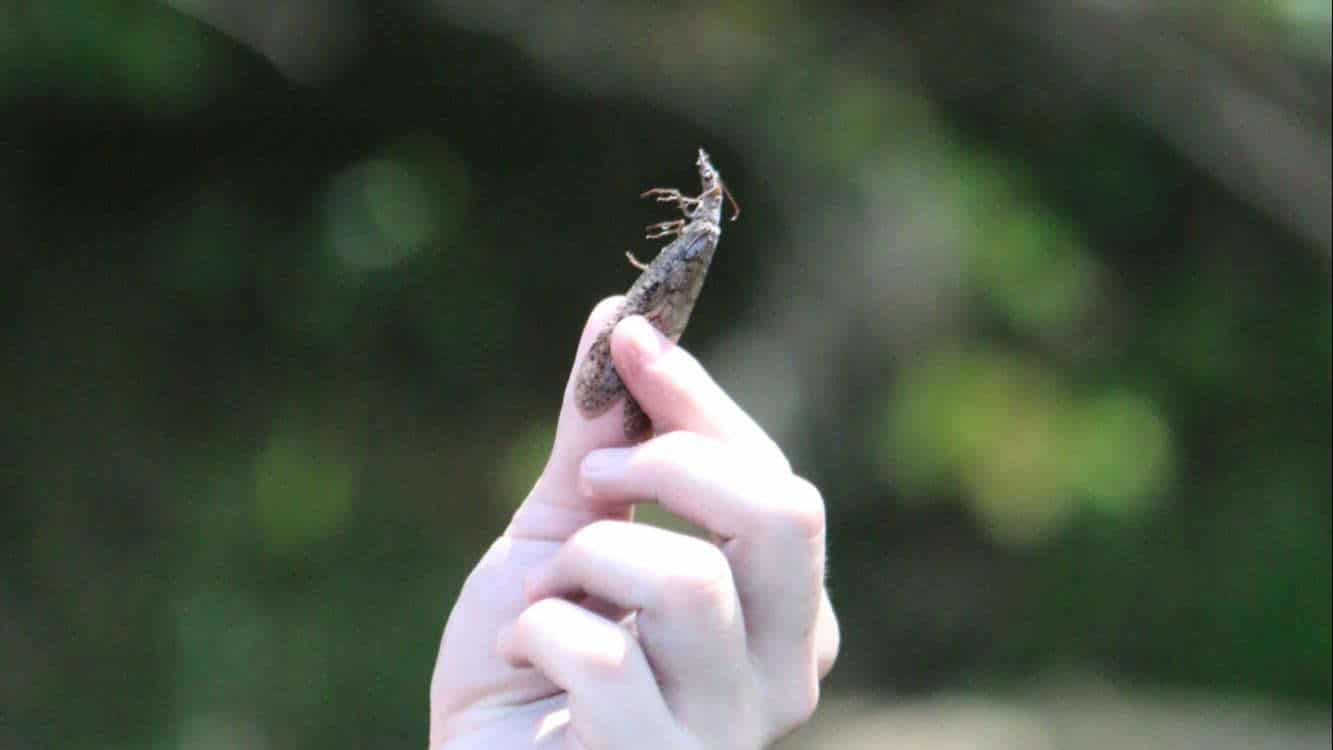
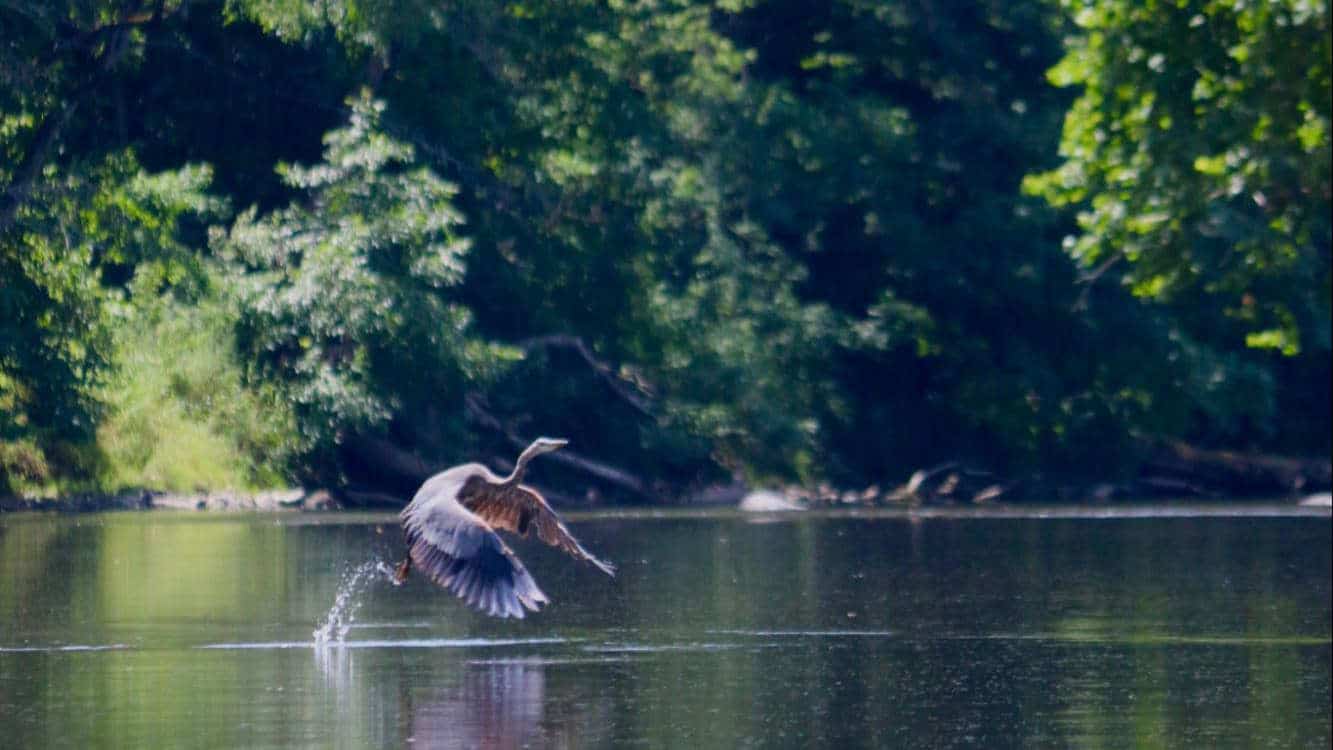
Stopping for a second time, we pulled off onto another rocky beach to work on some water chemistry and bug identification! The interns saw part of what the education team does when they take groups to the stream, introducing them to scientific work and water health. It was exciting to learn how they work with groups of all ages, doing similar things to what some interns do, but in a way that allows the community to learn and engage!
At this stop, interns from all departments got to work with bugs and engage in science. Our entomologists especially enjoyed collecting and identifying different macroinvertebrates as they introduced the various species to the other interns! Some of their findings included Psephenidae (water pennies), Corydalidae (dobsonflies), crayfish, toads, Belostomatidae (giant water bug), and more!
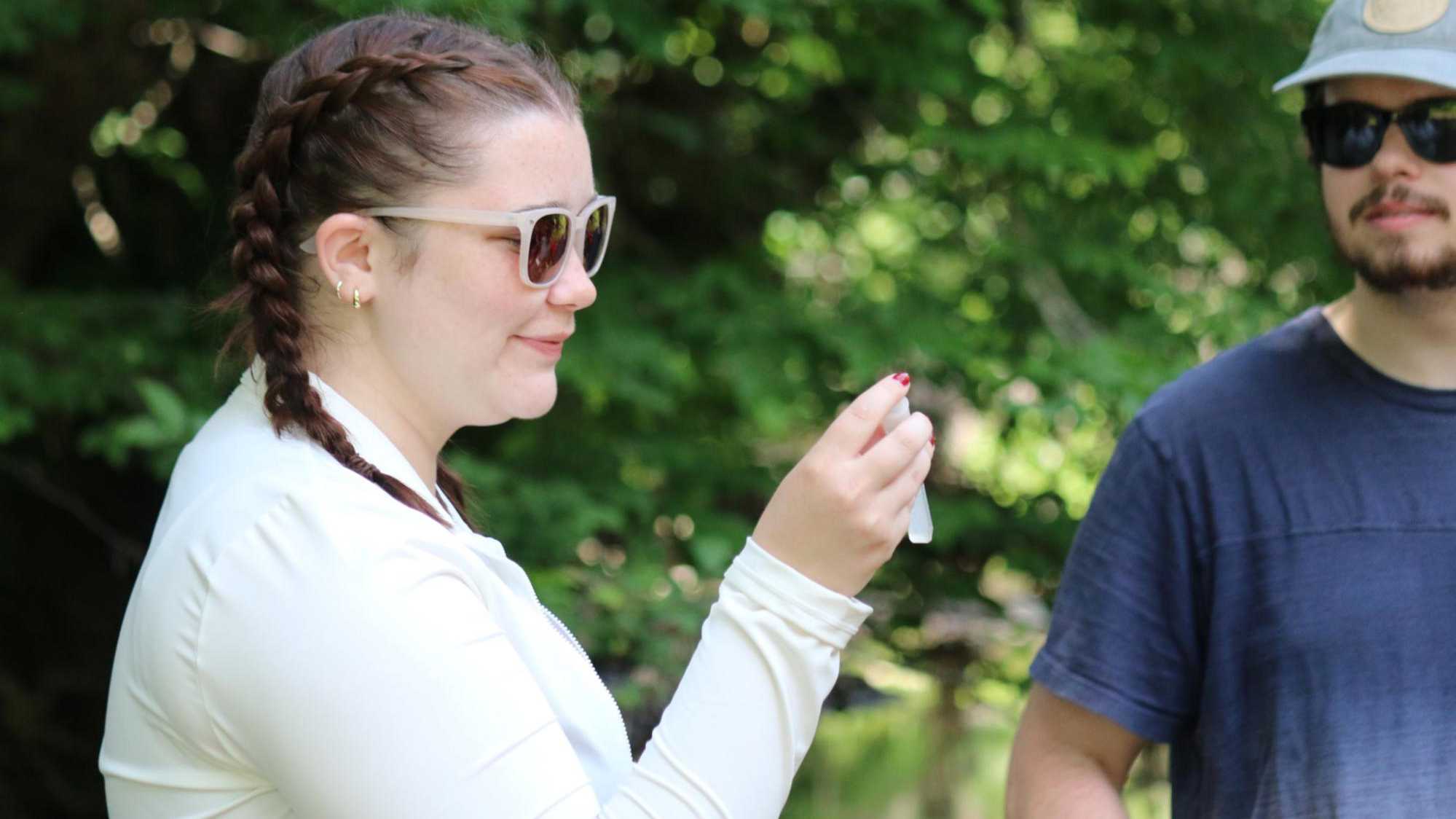
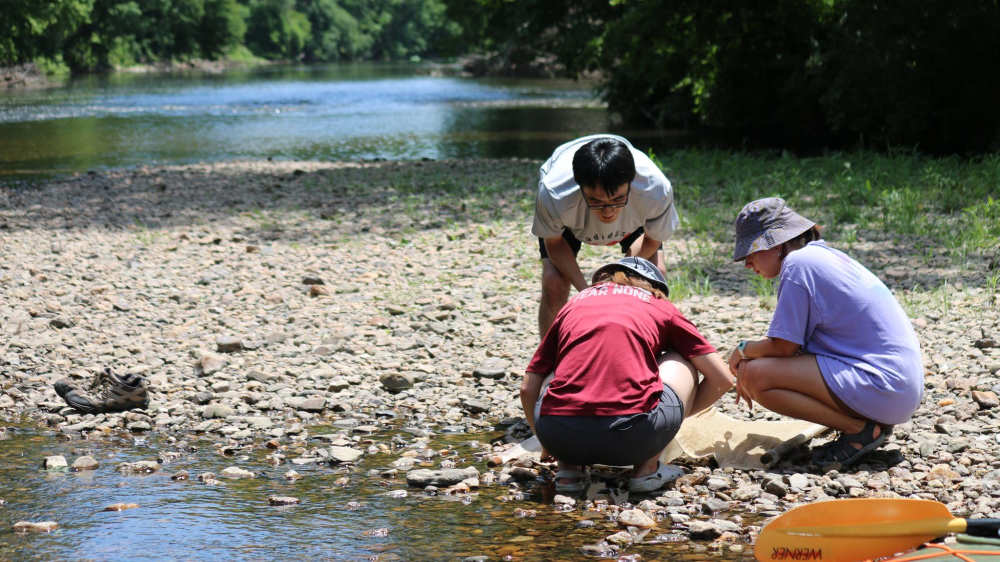
After boarding our canoes for the last time, we made our way to the end of our trip. All of the interns made it through the day without falling in! Everyone worked together to help get the canoes out of the water and back onto the truck. We had a great day on the water, laughing and making new friends. We are grateful that the Stroud Center allowed us to relax a little at work and learn something new along the way!
Each summer, Stroud Water Research Center welcomes a new group of interns eager to begin what may become their life’s work. In this 52nd summer of our internship program, we didn’t want to miss the chance to recognize our interns for their hard work. Thank you!
2024 Summer Interns
Entomology
Sofia Trone, Purdue University, 2027
Sarah Arment, Geneva College, 2024
Tom Erwin, Delaware Valley University, 2025
Savannah McMullen, University of Delaware, 2026
Abby Duimering, Ursinus College, 2024
Marie Gazzillo, Ursinus College, 2022
Caroline Conrad, University of South Carolina, 2027
Andrew Waite, University of Delaware, 2026
Kate Knox, University of Pittsburgh, 2024
Matthew Good, Bloomsburg University, 2024
Finn Warren, Gettysburg University, 2022
Kerry Morley, Temple University
Communications
Elizabeth Anthony, University of Delaware, 2024
Fluvial Geomorphology
Rowan Kelly, West Chester University, 2025
Information Services
Koji Shimomura, West Chester University (M.S.)
Microbiology
Logan Daniels, Unionville High School
Jacqueline Carroll, University of Delaware (M.S.)
Watershed Restoration
Abby Horst, Millersville University, 2024
Ryan Gaydos, Penn State University, 2026
Clara Gutkind, Kutztown University, 2025

